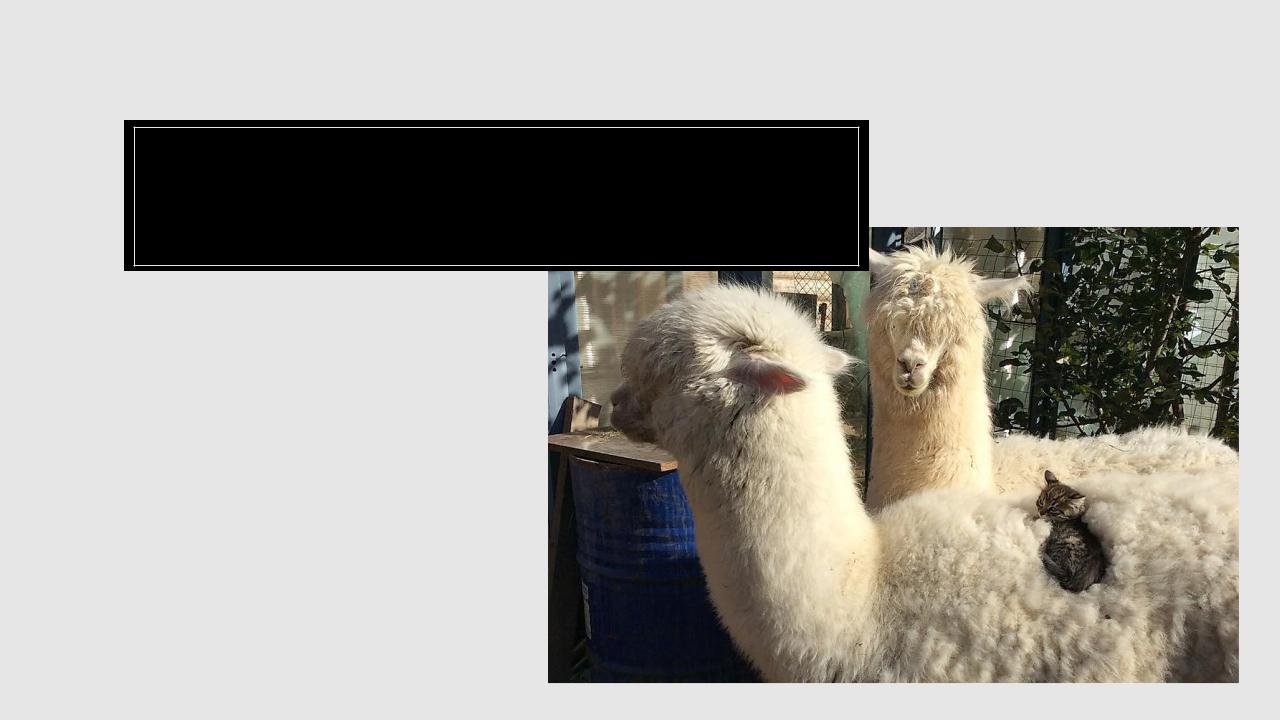
- •Domestication
- •There is evidence that alpacas were domesticated as many as 6000 years ago
- •When the Spanish Conquistadores arrived in Peru, they found a civilization that was
- •Blinded by the abundant gold, silver and precious stones, the Spanish ensued a
- •Alpacas were first brought to lower elevations about 3,800 years ago and are
- •According to Spanish records, the Inca had a hereditary caste of herding specialists,
- •The two coat or breed types are huacaya and suri. Both fleeces are
- •Thanks for attention

Domestication
of alpacas
Made by student of

There is evidence that alpacas were domesticated as many as 6000 years ago and are associated with the goddess "Pachamama", the Earth Mother in Andean mythology. It was believed that alpacas were loaned to humans, to be left on earth for only as long as they were properly cared for and respected. According to this legend, alpacas were given as a gift at the mountain Ausangate in Peru.
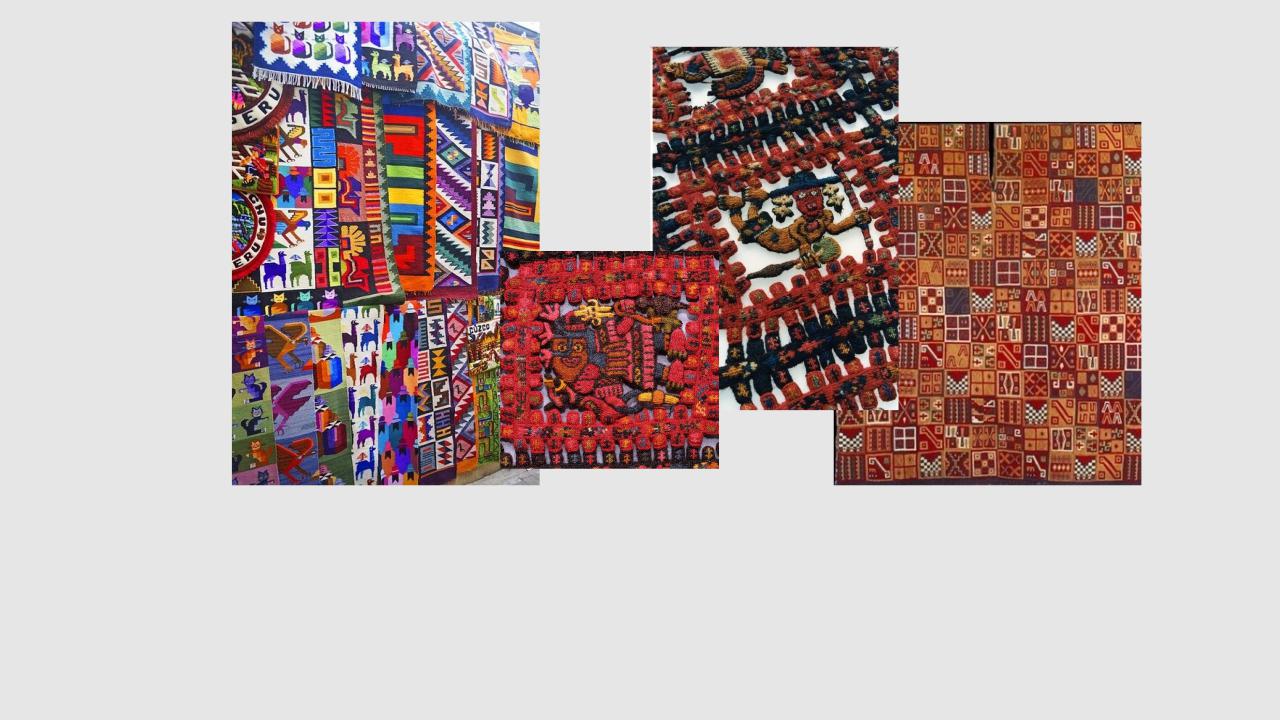
When the Spanish Conquistadores arrived in Peru, they found a civilization that was based on textiles. The Inca people lived in a society that was literally ‘woven together” by the fibres supplied by alpacas, llamas and cotton. Inca weavers made everything including bridges and roofs from fibres and they even recorded their wealth in patterns of knots.

Blinded by the abundant gold, silver and precious stones, the Spanish ensued a wholesale slaughter of alpacas. as much as 90% of the alpacas in South America were slaughtered and left to rot in the fields. The carefully tended alpaca herds, divided by colour and quality, were killed or
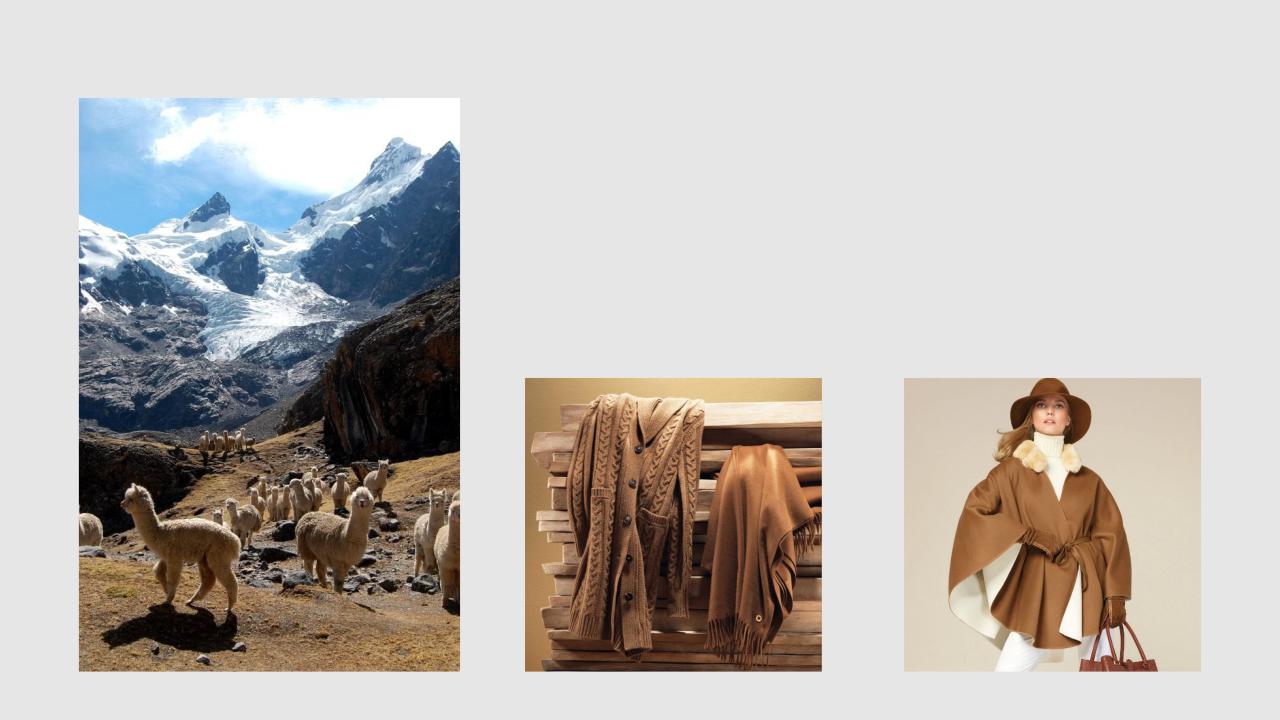
Alpacas were first brought to lower elevations about 3,800 years ago and are in evidence at coastal locales by 900–1000 years ago. Their smaller size rules out their use as beasts of burden, but they have a fine fleece that is prized throughout the world for its delicate, light-weight, cashmere-like wool that comes in a range of colors from white, through fawn, brown, gray, and black.
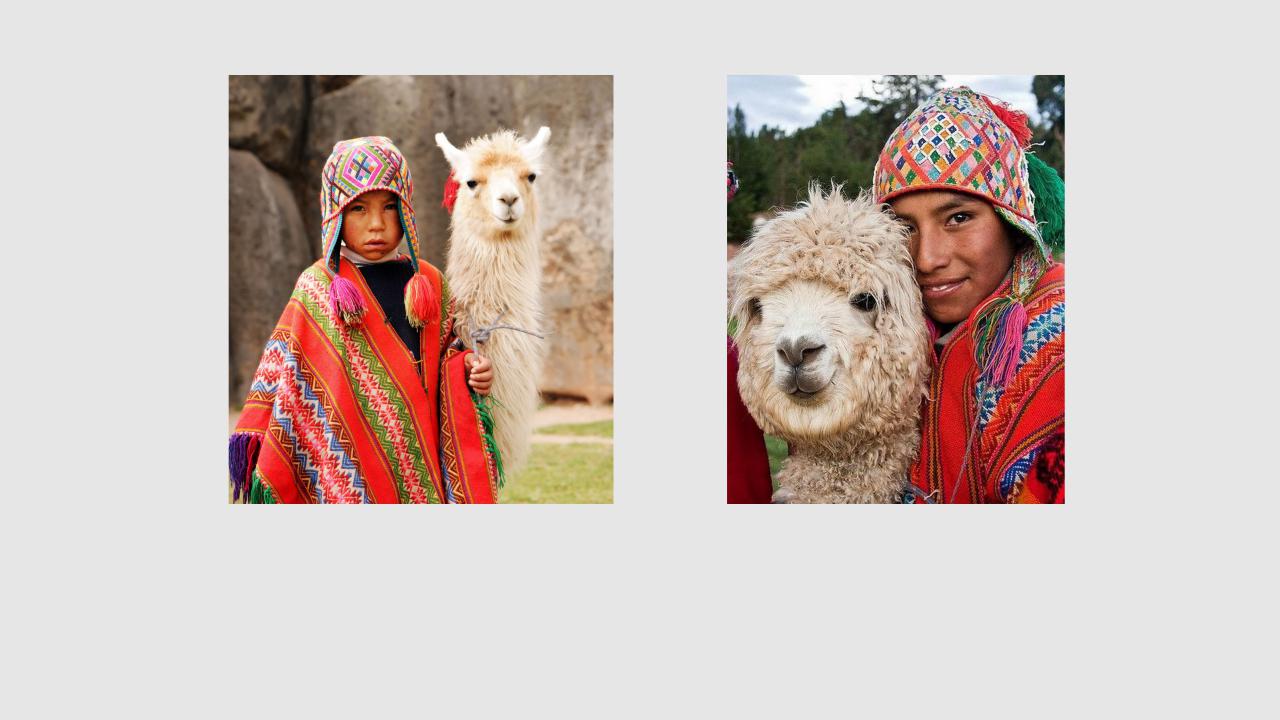
According to Spanish records, the Inca had a hereditary caste of herding specialists, who bred animals with specific colored pelts for sacrificing to different deities. Information on flock size and colors are believed to have been kept using the quipu. Herds were
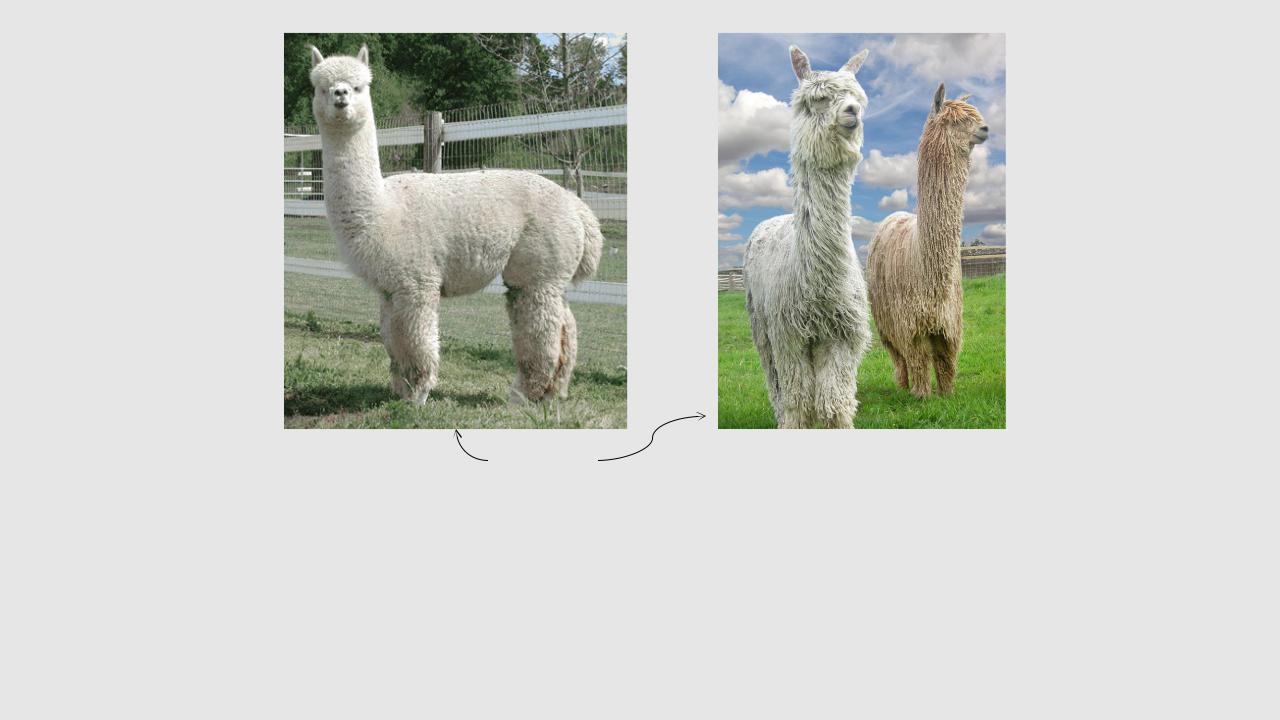
The two coat or breed types are huacaya and suri. Both fleeces are soft and free of guard hair. Ninety-five percent of alpacas are huacaya, with full, puffy fleeces whose crimp or crinkle is found throughout their fleeces. The lustrous, straight fiber of the suri fleece hangs down in "dreadlocks", giving the suri alpaca an entirely different appearance. Fibers of both types are considered luxury fibers in the textile trade because of their unique qualities.
